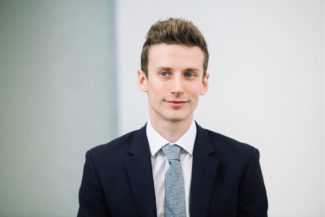European Commission sets up SEP Licensing Expert Group
09.07.2018
The Commission’s November 2017 Communication on SEPs (on which we reported here) referred to the Commission’s intention to set up an expert group to gather industry practice and expertise on FRAND licensing that could be used to support the Commission’s policy making (the “Expert Group”). On 5 July 2018 the Commission adopted a decision establishing the Expert Group. As well as setting out what the Expert Group’s tasks will be and noting that the Commission may consult the Expert Group on any matter relating to licensing and valuation of SEPs, the decision explains how the members of the Expert Group will be selected and how observer organisations can play a role. Further information is available on the Commission website.
Membership and selection process
The Expert Group will comprise up to 15 members with substantial experience in licensing and / or the valuation of SEPs (other experts with specific expertise may also be invited to work with the Group on an ad hoc basis). At least two thirds of the members will be appointed in a personal capacity and must act independently and in the public interest.
The remaining members may be appointed to represent a common interest shared by stakeholders (the member and interest represented will be listed in a Transparency Register). The application form gives the following list of interests that can be represented:
- Academia/Research
- Civil society
- Employees/Workers
- Finance
- Industry
- Professionals
- SMEs
- Other (to be specified)
Applicants will also be required to indicate the policy areas in which the stakeholders they represent operate. The categories of interest are surprisingly broad. Within ‘Industry’ for example, there are likely to be a wide range of (conflicting) views presented. We have previously discussed some of the areas of fierce debate within industry on topics such as use-based licensing, licensing to all and the appropriate royalty base– see here and here.
The deadline for applications is 20 August 2018. Members shall be appointed by DG GROW, after consultation of the other Commission services concerned, for a term of two years. Given its responsibility for IP and standardisation, DG GROW is the directorate taking the lead here: the Expert Group will act at its request and will be chaired by a representative of DG GROW.
Observers
Organisations directly involved in licensing or valuing SEPs may (by invitation) be granted observer status. If appointed, the organisation will be able to nominate an experienced representative to participate in Expert Group meetings, although the representative will not have voting rights or be able to participate in the recommendations or advice produced by the Group. The names of observer organisations and their representatives will be listed in the Transparency Register.
Thoughts
We have previously noted that rival CEN-CENELEC workshops have been set-up to produce Codes of Conduct on best practices for SEP licensing, and that these Codes are likely to adopt very different positions on the most contentious unresolved issues in SEP licensing (here). Recommendations produced by the Commission-backed Expert Group should take into account a wider range of views, and are likely to be more persuasive.
It will therefore come as no surprise that lobbying groups have been quick to set out their views on the sorts of members that should be appointed to the Expert Group. For example, IP Europe “urge[s] the European Commission to ensure broad representation on the expert group from leading European innovators of wireless open standard technologies” (here), whereas ACT | The App Association emphasises the importance of including “the perspective of innovators from all along the value chain” (here).
Whoever DG GROW decides to appoint (and there is no deadline currently set for when the list of appointed members will be published), it will need to ensure that the Expert Group is capable of grappling with the many complicated issues currently arising in FRAND licensing disputes, as well as new issues that will do doubt arise as the Internet of Things continues to evolve.


